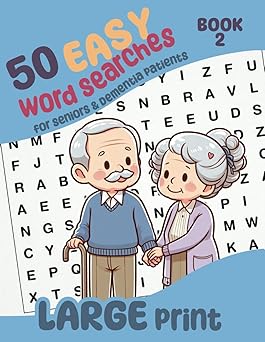Adapting Communication for Dementia Care
As communication ability declines with dementia, it is important to adapt your own communication style to meet the needs of the individual with dementia. Here are some tips for making that work.


Effective and clear communication is essential in dementia care. It helps to reduce frustration, strengthen connections, and enhance the well-being of both the person with dementia and those who interact with them. As cognitive abilities change, adapting how you communicate can make interactions more meaningful and less stressful.
Here are some ways to tailor communication for dementia patients and practical tips to increase understanding and connection.
Why Adapting Communication Matters
Dementia often impairs language processing, memory, and comprehension, leading to misunderstandings or agitation. Using clear, patient, and empathetic communication techniques helps the person feel heard and respected. I personally found it frustrating to communicate with my mother as her ability to understand became impaired. Adapting my communication felt like giving in, but in the long run, it definitely helped once I surrendered to the process.
Use Simple, Clear Language
Speak in short, straightforward sentences with familiar words. For example, instead of saying “Would you like to get ready for your appointment now?” try, “Let’s put on your shoes.” Pause between sentences to allow for processing time. Avoid complex questions or abstract ideas, as these can confuse. A calm, friendly tone helps convey warmth and reassurance.
Maintain Eye Contact and Body Language
Non-verbal cues are powerful in dementia care. Make eye contact at their level, such as sitting if they’re seated, to show attentiveness. Use gentle gestures, like a smile or a light touch on the hand, to convey care. For example, nodding while saying “I’m here with you” reinforces your presence. Avoid sudden movements or tense postures, which might cause stress.
Listen Patiently and Validate Feelings
Allow extra time for responses, as processing may be slow. If they struggle to find words, don’t interrupt or correct. Instead, listen attentively and nod to show understanding. Validate their emotions, even if their words are unclear. For instance, if they’re upset, say, “I see you’re feeling sad. Let’s sit together.” This can build trust and ease frustration.
Use Visual or Sensory Cues
Supplement verbal communication with visual aids, like pointing to a cup while saying, “Here’s a drink for you.” Show object during conversations, such as holding a photo when discussing family. For non-verbal individuals, watch for gestures or facial expressions to understand their needs and emotions. For example, a frown may indicate discomfort or frustration, prompting you to check for physical issues.
Adapt communication to current abilities
Simplify further as dementia progresses
Stay calm, even in challenging moments. Your tone sets the mood
Avoid correcting or arguing, like insisting that a hallucination isn't real
Be patient and take breaks
Empathy and clarity will build stronger connections


Useful Resources
Easy Nature Wordsearch
An easy, large print wordsearch, suitable for elders with dementia or other forms of cognitive decline.
A dementia-friendly wordsearch book with a range of simple themes.
An easy word search book with Christian-themed puzzles. Large print and dementia-friendly.
Easy Wordsearch
Easy Christian Wordsearch
Connect
© 2025. All rights reserved.




